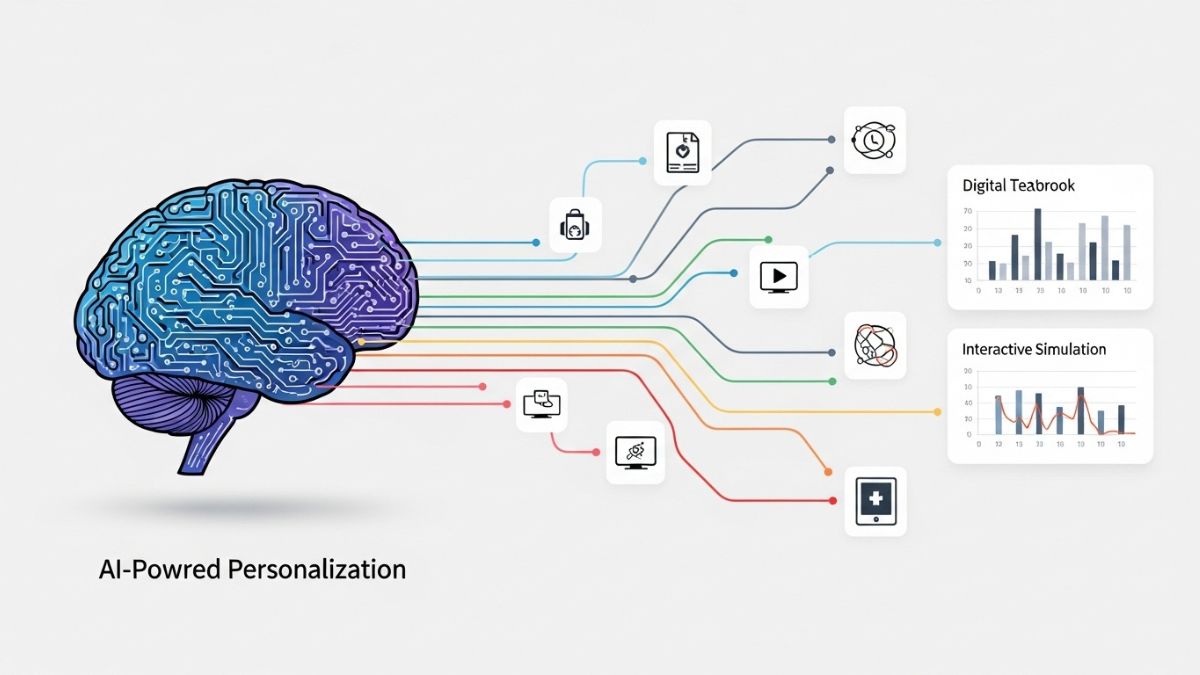Introduction
In an increasingly digital world, education has transcended the boundaries of traditional classrooms. For international students seeking high-quality academic qualifications, home study has emerged as a flexible and effective alternative. Whether due to geographical constraints, personal commitments, or the need for a tailored learning pace, online education provides a viable solution.
Programs like International A Levels and IGCSEs are now accessible to students worldwide through structured online platforms. These qualifications are recognized globally, opening doors to higher education and career opportunities. This article explores why international home study is the way forward, highlighting its benefits, flexibility, and suitability for diverse learners.
The Rise of Online Learning for International Students
The demand for online education has surged, particularly among international students who require recognized qualifications but cannot attend traditional schools. With advancements in technology, students can now study International A Levels online from anywhere in the world. This eliminates the need for relocation, reducing costs and stress associated with moving abroad.
Online learning platforms offer interactive lessons, recorded lectures, and access to expert tutors, ensuring students receive a high standard of education. Additionally, digital classrooms foster collaboration among students from different countries, enriching the learning experience through diverse perspectives.
The COVID-19 pandemic further accelerated the shift toward online education, proving that remote learning can be just as effective as in-person instruction when properly structured. Institutions have since refined their digital offerings, incorporating live tutorials, discussion forums, and AI-driven assessments to enhance engagement.
Flexibility and Personalized Learning
One of the biggest advantages of home study is flexibility. Unlike rigid school schedules, online programs allow students to learn at their own pace. This is particularly beneficial for those balancing academics with extracurricular activities, part-time jobs, or family responsibilities.
Personalized learning plans cater to individual strengths and weaknesses, helping students grasp difficult concepts before moving forward. Adaptive learning technologies and one-on-one tutoring further enhance understanding, ensuring no student is left behind.
For students with learning differences, such as dyslexia or ADHD, online education provides customizable tools like text-to-speech software, extended deadlines, and visual learning aids. This inclusivity ensures that every learner has an equal opportunity to succeed.
Recognized Qualifications: International A Levels and IGCSEs
A major concern for students and parents is whether online qualifications hold the same value as traditional ones. Fortunately, International A Levels and IGCSEs are widely recognized by universities and employers globally. These qualifications are administered by reputable examination boards such as Cambridge Assessment International Education (CAIE) and Pearson Edexcel.
Students who complete these programs are well-prepared for higher education, as the curriculum emphasizes critical thinking, problem-solving, and independent research—skills highly valued in universities. Many top institutions, including Oxford, Harvard, and the National University of Singapore, accept these qualifications for admission.
Moreover, online exam centers and remote invigilation options now allow students to sit for their final assessments without needing to travel, making the process more convenient and accessible.
Accessibility for Diverse Learners
Home study breaks down barriers for students who may face challenges in traditional schooling systems. Whether due to health issues, financial constraints, or learning differences, online education provides an inclusive alternative.
For instance, IGCSE options for everyone ensure that students with varying academic abilities can find suitable courses. Many platforms offer foundational, extended, and vocational pathways, allowing learners to choose programs that align with their career goals. Additionally, students in remote areas gain access to high-quality education without the need for long commutes or expensive boarding schools.
Refugee students, expatriate families, and those living in conflict zones particularly benefit from online learning, as it provides stability and continuity in education despite external disruptions. Organizations like UNICEF and the British Council have also supported digital learning initiatives to ensure education remains accessible in crisis situations.
Cost-Effective and Convenient
Traditional international schooling often comes with high tuition fees, accommodation costs, and additional expenses. In contrast, home study is a more affordable option. Online programs typically have lower fees, and students save on transportation, uniforms, and other school-related costs.
Moreover, learning from home provides convenience and safety, especially for students in regions with political instability or limited educational infrastructure. Parents can also monitor their child’s progress more closely, ensuring they stay on track academically.
Some platforms even offer pay-as-you-go or installment-based payment plans, making education more financially manageable for families. Scholarships and discounts for high-achieving students further reduce the financial burden.
Preparing for the Future: Skills Beyond Academics
Beyond earning qualifications, home study equips students with essential 21st-century skills. Online learners develop self-discipline, time management, and digital literacy—traits that are invaluable in higher education and the workplace.
The ability to navigate online resources, collaborate virtually, and adapt to different learning platforms prepares students for a tech-driven world. Many universities now offer blended or fully online degree programs, making the transition from home study to higher education seamless.
Employers also value candidates with experience in remote learning, as it demonstrates independence, adaptability, and strong organizational skills—qualities that are increasingly important in today’s hybrid work environments.
Final Thoughts
International home study is revolutionizing education by making world-class qualifications accessible to students regardless of location or circumstance. With the flexibility to study International A Levels online and diverse IGCSE options for everyone, learners can achieve their academic goals without the constraints of traditional schooling.
As technology continues to evolve, online education will only become more immersive and effective. For students seeking a recognized, cost-effective, and personalized learning experience, home study is undeniably the way forward. Embracing this model ensures that no learner is left behind in the pursuit of knowledge and success.
The future of education is digital, and those who adapt early will have a competitive edge in an increasingly interconnected world. Whether for academic excellence, career advancement, or personal growth, international home study offers a pathway to success for students everywhere.















